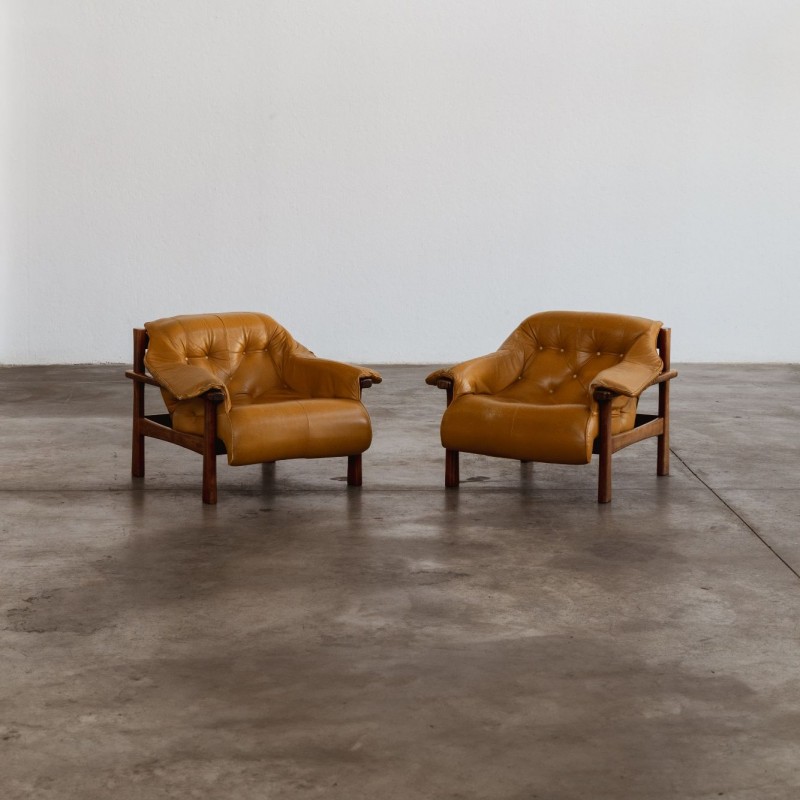Percival Lafer “MP-41” sofa for Lafer MP, 1972, Set of 2
Description
Percival Lafer “MP-41” sofa for Lafer MP, wood and cognac leather, Brazil, 1972
The “MP-41” armchairs by Percival Lafer embrace fluidity with a structure that appears weightless despite their solid wood frames. The absence of visible crossbars beneath the seat enhances this effect, allowing the thick, tufted cushions to seemingly float. The upholstery drapes over the structure like silk fabric on a sculpted form, a harmonious integration of material and frame. The butterfly-shaped joints refine the frame’s construction, tapering toward the center for a softened profile. The lateral tufting on the seat is not merely decorative—it creates a structured geometry that follows the contours of the body. The armrests, backrest, and seat merge into a single, uninterrupted form, maximizing ergonomic support. Leather straps secure the cushions to the frame, a signature Lafer detail that blends artisanal technique with industrial efficiency. The MP-41 prioritizes organic curves over strict geometric lines. The deep cognac leather, aged to a rich patina, enhances the warmth of the wood. The absence of ornamentation shifts focus to the raw materials, celebrating their natural textures and variations. Unlike Jean Gillon’s “Tijuca” chair, which relies on rope detailing, Lafer’s approach focuses on uninterrupted material surfaces and hidden reinforcements. This design reflects Lafer’s broader philosophy—modern furniture should merge craftsmanship with efficiency. His work redefined Brazilian furniture design, balancing industrial precision with the tactile richness of traditional materials. The MP-41 remains one of his most refined and structurally innovative creations.
Lafer pioneered the production of high-quality furniture by replacing traditional steel springs with polyurethane foam over elastic webbing. This innovation preserved comfort and flexibility. Considered one of the fathers of Brazilian Modern design, along with Sergio Rodrigues, Jorge Zalszupin, Joaquim Tenreiro, and Oscar Niemeyer, he started his career as a car mechanic. His contributions to Brazilian design are significant.
Dimensions
Height: 28.34 in (72 cm)
Width: 82.67 in (210 cm)
Depth: 36.22 in (92 cm)
Seat Height: 16.53 in (42 cm)
Arm Height: 21.25 in (54 cm)
Design
1972
Manufacture
1970-1979
Material
Leather and wood
Location
Lonigo, IT
Condition
We accurately check the quality of each object. Our in-house atelier carefully reviews every item. Contact us for more information.








